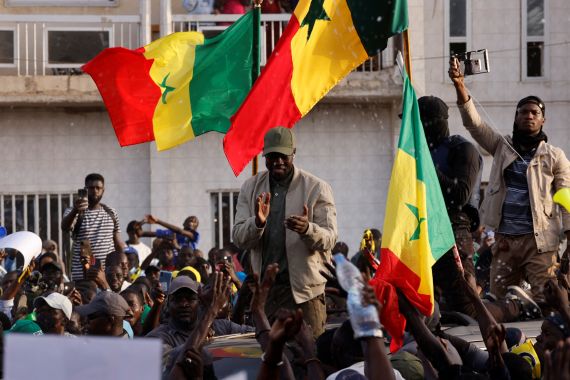Senegal is currently facing escalating tension due to the potential exclusion of its primary opposition leader from the upcoming elections scheduled for next year. Ousmane Sonko, a popular politician, had his initial two-month suspended sentence for defamation and public insult against a government minister extended to six months by a Dakar court last week. In addition to the extended sentence, he was also imposed a fine of $336,000. Furthermore, another case concerning the alleged rape of a beauty-salon worker, which Sonko vehemently denies, has been postponed until May 23. Both these legal challenges have the potential to disqualify Sonko from participating in the elections. In response, his supporters have already begun protesting in his hometown of Ziguinchor, while he has lodged an appeal against the defamation case.
This clash between the judicial system and politics is not unprecedented as the opposition has long held the belief that the government manipulates the judiciary to undermine the careers of prominent rivals. The legal cases against Sonko consolidate the long-running opposition view that the government weaponises the judiciary to torpedo the careers of prominent rivals.
The exclusion of political figures through legal means is not a new occurrence either. Khalifa Sall, the former mayor of Dakar, was barred from the 2019 election due to his imprisonment on corruption charges. Similarly, Karim Wade, the son of former president Abdoulaye Wade, was disqualified because of a conviction for illegal enrichment in 2015. Both individuals vehemently denied the allegations against them.
In response to these accusations, the government of Senegal denies utilising the judiciary as a means to sideline opponents. They assert that the country’s courts operate independently, and the concern lies in upholding equality before the law rather than determining a politician’s eligibility. Abdou Karim Fofana, the government spokesman, stated, “The issue at stake isn’t the eligibility of a politician, but being equal before the law.”
However, Sonko’s predicament is only a fragment of the larger picture. President Macky Sall came to power in 2012 following protests against his predecessor’s decision to seek a third term. Paradoxically, Sall himself is now considering extending his term, a move that the opposition deems unconstitutional and has triggered recent protests. To ease the political tension, Sall could announce his decision not to run again, potentially solidifying his legacy as a leader who facilitated significant investments and brought the country closer to a prosperous gas industry.
Nevertheless, Senegal, known for its stability and robust democratic system in West Africa, currently finds itself on the verge of a crisis, treading upon a precarious situation that could erupt at any moment.

